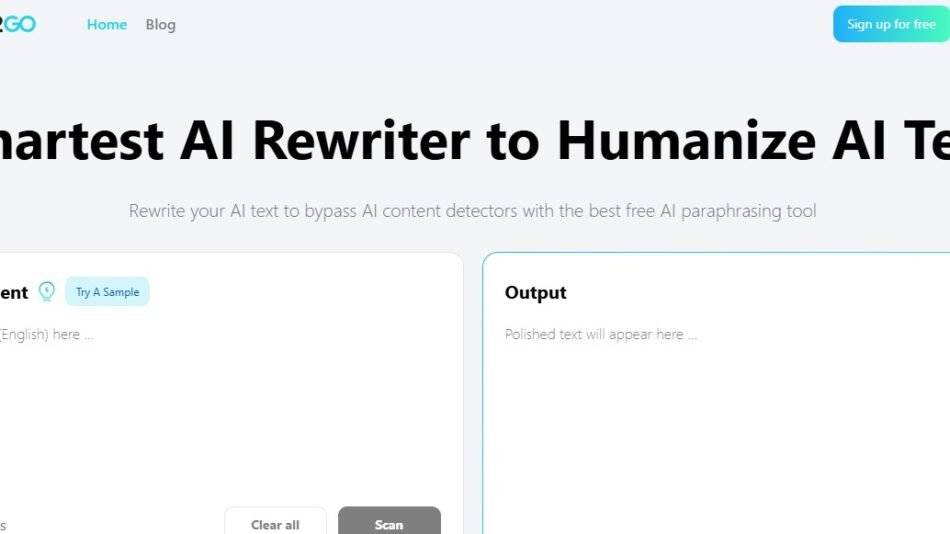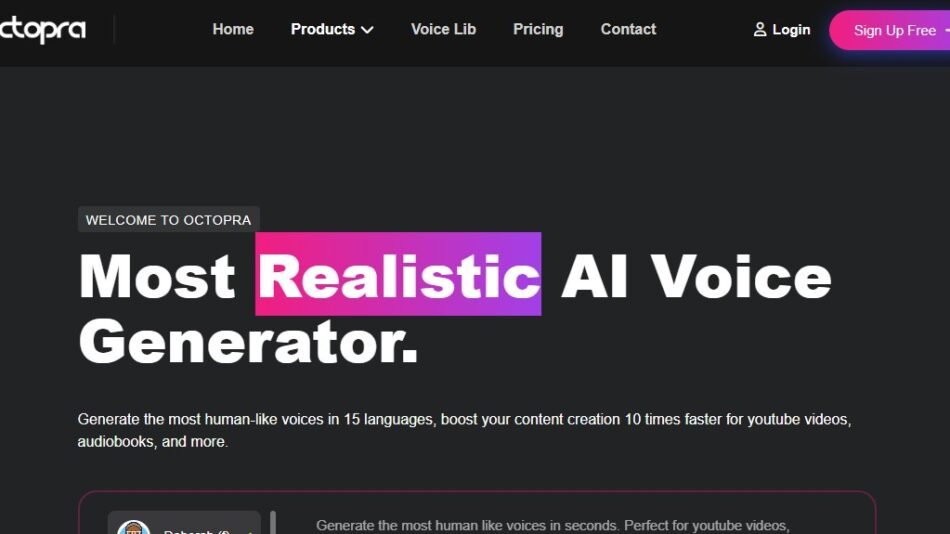Coqui.ai was an open-source platform offering advanced speech technologies, including text-to-speech (TTS) and speech-to-text (STT) solutions. The platform provided developers and researchers with tools to create, train, and deploy speech models across various languages and applications. With its focus on voice cloning, multilingual support, and custom model training, Coqui.ai was a powerful resource for anyone looking to implement AI-driven speech tools in their projects.
Although Coqui.ai has recently shut down, it left a significant impact on the speech technology community through its open-source contributions.
Features of Coqui.ai
1. Text-to-Speech (TTS) Solutions
Coqui.ai offered a robust TTS library with pretrained models in over 1,100 languages, allowing users to convert text into natural-sounding speech. The platform supported advanced features such as:
- Voice Cloning
- Multilingual Speech Generation
- Low-Latency Streaming
These capabilities made it suitable for a wide range of applications, from voice assistants to audiobooks and personalized voiceovers.
2. Speech-to-Text (STT) Solutions
Coqui.ai’s STT tools allowed users to accurately transcribe spoken language into text. This feature was ideal for applications like:
- Voice Assistants
- Transcription Services
- Call Center Solutions
3. Model Training and Fine-Tuning
One of Coqui.ai’s most powerful features was its support for training and fine-tuning custom models. Users could:
- Train new models from scratch
- Fine-tune existing models to meet specific needs
- Support various languages and dialects
4. Open-Source Community
As an open-source platform, Coqui.ai encouraged contributions from developers and researchers around the world. This community-driven approach helped improve the platform’s tools and expand its language support.
How Coqui.ai Worked
- Download Pretrained Models
- Users could download pretrained TTS and STT models from Coqui.ai’s repository.
- Customize Models
- Developers could fine-tune models or train new ones using their own datasets.
- Deploy in Applications
- The models could be integrated into various applications, including voice assistants, transcription tools, and interactive voice response (IVR) systems.
- Collaborate and Contribute
- Users could contribute to the platform’s open-source community by improving existing models or creating new ones.
Use Cases for Coqui.ai
1. Voice Assistants
Developers could use Coqui.ai to create natural-sounding voice assistants for smart devices and applications.
2. Transcription Services
The platform’s STT tools made it easy to transcribe spoken language into text, ideal for businesses offering transcription services.
3. E-Learning
Educational platforms could generate engaging voiceovers for their content using Coqui.ai’s TTS models.
4. Audiobooks and Podcasts
Content creators could use Coqui.ai to produce high-quality voiceovers for audiobooks and podcasts.
Pricing
Coqui.ai was free and open-source, allowing users to download and use its models without any licensing fees. This made it an affordable solution for developers, researchers, and businesses looking to implement speech technology without incurring significant costs.
Strengths of Coqui.ai
- Open-Source – The platform was completely open-source, promoting transparency and collaboration.
- Extensive Language Support – Coqui.ai offered models in over 1,100 languages, making it suitable for a global audience.
- Voice Cloning – The platform supported voice cloning, allowing users to create personalized voice models.
- Custom Model Training – Users could train and fine-tune models to meet specific needs.
- Community-Driven – The platform encouraged contributions from users to improve its tools and expand its capabilities.
Drawbacks of Coqui.ai
- Closure of the Platform – As of 2023, Coqui.ai has officially shut down, leaving users without ongoing support or updates.
- Complex Setup for Beginners – Setting up custom models and training required some technical knowledge, which could be challenging for non-developers.
Comparison with Other Tools
Compared to other speech technology platforms like Google Text-to-Speech and Amazon Polly, Coqui.ai stood out for its open-source nature and customization options.
While commercial platforms provide ready-to-use solutions, Coqui.ai offered greater flexibility for users to fine-tune models and create unique voice solutions. However, with its closure, users may need to explore alternatives like:
- OpenTTS
- Mozilla TTS
Customer Reviews and Testimonials
⭐️⭐️⭐️⭐️⭐️ – “An Excellent Open-Source Alternative”
“Coqui.ai made it easy for our team to develop a custom voice assistant. The fact that it was open-source made it even better.”
— John M., Software Developer
⭐️⭐️⭐️⭐️ – “Great Tool for Multilingual Projects”
“We used Coqui.ai for a transcription project across multiple languages. It worked better than most commercial tools.”
— Laura S., Researcher
⭐️⭐️⭐️ – “Sad to See It Go”
“Coqui.ai was a fantastic resource for developers. I hope the community continues to build on its legacy.”
— Sarah L., AI Enthusiast
Conclusion
Coqui.ai was a powerful, open-source platform that provided text-to-speech and speech-to-text tools for a wide range of applications. Its voice cloning, multilingual support, and custom model training made it a valuable resource for developers, researchers, and businesses seeking to implement AI-driven speech solutions.
Although Coqui.ai has shut down, its impact on the speech technology community remains significant. For those looking to explore similar tools, open-source alternatives like OpenTTS or Mozilla TTS may be worth considering.
Visit Coqui.ai to learn more about its legacy and explore the resources left by its community.















